Contents:
- Controlling invasive non-native plants
- Disposing of invasive non-native plants
- Composting at home
- Non-native plants that should not be composted at home
- Choosing new plants for your garden
- Restrictions on invasive non-native plants
Controlling invasive plants in your garden
If you have an invasive plant in your garden that you want to control or remove, the following links provide useful information on identifying invasive plants and options for managing them:
- Identification guides for a number of invasive plants
- Guidance on management of common invasive plants
Disposing of invasive non-native plants from your garden
You should make sure nothing you remove from your garden, pond or aquarium gets into the wild, you could be breaking the law if it does. Never dump any garden waste beyond your garden boundary.
- Find out more about restrictions on invasive non-native plants.
Most plants can be composted at home but some require an alternative disposal method, find out more below.
Composting at home
Most non-native ornamental plants can be composted at home, but some do not properly decompose in small scale composting (such as cold composting at home) and may regrow. The table below contains guidance on species to look out for and how to dispose of them. You may wish to avoid growing these species in your garden.
Hot composting systems which operate at a higher temperature killing most seeds and roots can be bought or created at home and are likely to be more effective at breaking down invasive non-native plants. Research good composting practice to reduce the risk of regrowth/survival.
Most of the species which are unsuitable for composting can be disposed of in your green waste collection as they will be broken down by the heat generated during large scale composting. They can also be disposed of by burning to avoid regrowth.
Non-native plants that should not be composted at home
|
Species |
Part of plant |
Do not compost at home in cold compost |
Can be put in green bin |
Requires specific treatment at home |
|
Acaena spp. (Pirri-pirri bur) |
Seeds |
X |
X |
|
|
Acanthus mollis (Bear's breech) |
Roots |
X |
X |
|
|
Alchemilla mollis (Lady’s mantle) |
Seed heads |
X |
X |
|
|
Allium paradoxum (Few-flowered leek) |
Seeds and bulbs |
X |
X |
|
|
Allium triquetrum (Three-cornered garlic) |
Seeds and bulbs |
X |
X |
|
|
Anemanthele lessoniana (Pheasant's tail grass) |
Seed heads |
X |
X |
|
|
Bamboos |
Roots
|
X |
X |
|
|
Crocosmia × crocosmiiflora (montbretia) |
Corms |
X |
X |
|
|
Crocosmia spp (Montbretia and other species) |
Corms |
X |
X |
|
| Egeria densa (Large-flowered waterweed) | X | X | ||
|
Fallopia japonica (Japanese knotweed) |
Whole plant, including rhizome |
X |
|
X View guidance for: |
|
F. × bohemica (Hybrid knotweed) |
Whole plant, including rhizome |
X |
|
X View guidance for: |
|
Fallopia sachalinensis (Giant knotweed) |
Whole plant, including rhizome |
X |
|
X View guidance for: |
|
Heracleum mantegazzianum (Giant hogweed) |
Seeds |
X |
|
X View guidance for: |
|
Heracleum persicum (Giant hogweed, Tromsø palm) |
Seeds |
X |
|
X View guidance for: |
|
Heracleum sosnowskyi (Giant hogweed) |
Seeds |
X |
|
X View guidance for: |
|
Houttuynia cordata (Heart-leaved houttuynia) |
Roots |
X |
X |
|
|
Hyacinthoides hispanica (Spanish bluebell) |
Seeds or bulbs |
X |
X |
|
|
Impatiens glandulifera (Himalayan balsam) |
Seeds |
X |
|
X View guidance for: |
|
Linaria purpurea (Purple toadflax) |
Seed heads |
X |
X |
|
|
Lysimachia clethroides, (Gooseneck loosestrife) |
Roots |
X |
X |
|
|
Petasites spp |
X |
X |
||
|
Solidago spp, (Goldenrods) |
Roots and seed heads |
X |
X |
|
Choosing new plants for your garden
Research plants before you buy them to make sure they are suitable for your needs, easy to dispose of, and won’t be invasive.
Some non-native plants are no longer available for sale due to their harmful impacts.
- Learn more about restricted plants.
Other non-native plants are not restricted from sale but can become difficult to manage. This can vary from garden to garden so it is wise to monitor them and manage / dispose of them with caution. Many of the plants in the table above have been reported as causing problems for gardeners.
You can report non-native garden plants as a problem and find out which plants other gardeners have reported as invasive through the Plant Alert project (external link).
Restrictions on invasive non-native plants
A number of non-native plant species are restricted in GB:
- 36 plant Species of Special Concern to which a number of restrictions apply. Find out more about restrictions in England and Wales and Scotland.
- 3 plant species banned from sale (external link) under the Wildlife and Countryside Act
If you have any of these species in your garden you should treat or dispose of them where possible and not intentionally allow them to grow or spread outside your land.
In addition, it is illegal to plant, or otherwise cause to grow in the wild, any plants listed on Schedule 9 of the Wildlife and Countryside Act (external link) in England and Wales. You may wish to avoid growing these species in your garden as they can be difficult to manage. In Scotland it is an offence to allow any non-native plant to grow in the wild.
Find out more about non-native species legislation.
